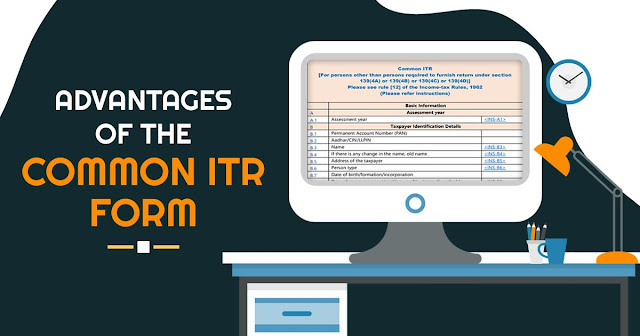To replace all income tax return forms, other than ITR-7, the tax department is proposing a single draft common new ITR Form, which taxpayers can download based on income and filing status questions they answer.
There will be an option to choose either the ITR-1 form or the ITR-4 form directly for assessees who are eligible to file those forms or the common new ITR form for those who are not. The common income tax return form, when implemented, will be the only option for taxpayers who need to file ITR-2 (ITR for capital gains) and ITR-3 (ITR for business returns).
The proposed common ITR can simplify the ITR filing process for CBDT, but the constant changes in the process can be challenging for taxpayers. Taxpayers who do not possess detailed knowledge of tax laws may end up having to hire a chartered accountant to answer their questions. The new common ITR has the following pros and cons.
Selecting the Correct ITR is No Longer Necessary
Currently, taxpayers have to choose the right form of ITR when filing their income tax returns. There are a number of factors that determine the appropriate form for a taxpayer. These include the taxpayer's status (individual, HUF, firm), the income type earned (such as salary, rental and business income, capital gains), and residency status.
The ITR 1 is required for individuals with salary income and one house property, who qualify as residents and have income less than Rs 50 lakh. If the same individual has capital gains or capital losses, they must file ITR 2.
Taxpayers will no longer have to select the right ITR form based on their circumstances by using the common ITR. A questionnaire-based form will be used for the common ITR. A number of schedules are included in the proposed form, including basic information (PAN card details, name and address of the assessee), calculation of total income, calculation of total taxes, information of bank accounts, and schedules for payment of taxes (taxes deducted at source, self-assessment tax, etc.).


Comments
Post a Comment